An alcohol withdrawal assessment is a crucial step that helps identify the severity of withdrawal symptoms and guides safe, effective treatment. Because alcohol withdrawal can range from mild discomfort to life-threatening complications, timely assessment helps ensure you get the right level of medical support.
In this article, we’ll discuss alcohol withdrawal assessments, including the tools commonly used by healthcare providers to measure symptoms. We’ll also discuss why accurate assessment is important to protect your safety, recovery and treatment, supporting your detox process.
Key Facts
- Evaluating alcohol withdrawal is essential to determine symptom severity, guide safe detox and prevent life-threatening complications.
- Structured scoring systems like CIWA-Ar and PAWSS standardize your treatment, improve safety and support clinical decisions.
- Alcohol withdrawal follows a predictable timeline, with risk for seizures most likely within 24–48 hours and delirium tremens (DTs) typically peaking at 48–72 hours.
- PAWSS screens for risk before withdrawal begins, CIWA-Ar monitors verbal patients and mMINDS with RASS is preferred in ICU patients or those who are non-verbal.
- Outpatient care may be appropriate for mild cases, but escalating treatment to inpatient or ICU for stabilization is necessary for severe symptoms or complications.
- Regular reassessment is recommended every 1–4 hours initially, extending once you’re stable and precise documentation is critical to safe management.
Nearby Alcohol Rehab Centers
Loading visitor information…
What Is Alcohol Withdrawal Assessment?
An alcohol withdrawal assessment is a clinical evaluation that measures the severity of your symptoms when you stop or reduce heavy drinking.
These structured tools and observations help identify risks to your health and determine the level of care needed for safe detox. This process ensures withdrawal is managed effectively while reducing the chance you’ll experience complications.
Purpose & How Assessment Scoring Guides Care
The purpose of an alcohol withdrawal assessment is to measure the severity of symptoms and guide clinical decisions. This includes determining the level of care needed to address your detox. These are not diagnostic tools but rather a structured way to ensure your safety and consistent management during withdrawal.
Validated scoring systems improve safety, reduce complications and help standardize your treatment process. Consistently using these tools supports more effective care and improves outcomes.
AWS Timeline & Complications to Watch For
Alcohol withdrawal syndrome (AWS) follows a predictable timeline. However, the type, severity and duration of symptoms will vary between people.
You can expect this typical timeline:
- 6–12 hours: Early symptoms such as tremors, anxiety and sweating
- 12–24 hours: Possible persistent and vivid hallucinations that can be visual, auditory or tactile
- 24–48 hours: Risk of seizures, often generalized tonic-clonic
- 48–72 hours: Peak risk of delirium tremens (DTs), with confusion, agitation and autonomic instability, which can cause sweating, rapid heart rate, high blood pressure, fever, and hallucinations
Accurately identifying your AWS stage is essential to planning your stabilization and treatment. Staging helps anticipate seizures and DTs. This drives critical decisions about monitoring alcohol withdrawal symptoms and whether escalating physical care is necessary.
Call A Treatment Provider
For a conversation about what treatment options are available to you.
Make a Call
When & How to Assess Alcohol Withdrawal
Assessing alcohol withdrawal should begin as soon as you reduce or stop heavy drinking, especially in a medical or detox setting. Early evaluation allows healthcare providers to track the onset and progression of symptoms. This ensures you receive timely intervention.

Regular assessments throughout withdrawal also guide safe treatment and reduce the risk of serious complications.
Settings & Triggers
Alcohol withdrawal assessments are used in multiple settings, including the emergency department, inpatient units and ambulatory care clinics. Screening is especially important when heavy alcohol use is reduced or stopped, such as at the time of hospital admission or before surgery.
An assessment should also be done whenever your history suggests possible withdrawal or when healthcare professionals are concerned that you may experience alcohol withdrawal syndrome. Baseline documentation of vital signs and mental status is crucial to track your progress and protect your safety.
Risk Factors & Baseline Clinical Workup
Certain factors increase the likelihood of severe alcohol withdrawal symptoms and require increased monitoring.
High-risk flags can include:
- Age over 65
- Prolonged heavy alcohol use
- History of delirium tremens or withdrawal seizures
- Multiple prior withdrawal episodes
- Significant medical comorbidities, such as traumatic brain injury
- Physiologic dependence on benzodiazepines or barbiturates
- Marked autonomic hyperactivity, which can include fluctuating heart rate, fainting, excessive sweating, fever, agitation and insomnia
A baseline clinical workup is a vital part of your stabilization. Recommended labs include a basic metabolic panel (BMP), liver function tests (LFTs), complete blood count (CBC), and blood alcohol level (BAL).
Clinicians should also rule out sepsis, head injury, and metabolic disturbances, using these findings to guide safe treatment planning.
Core Tools & When to Use Them
Core tools used in an alcohol withdrawal assessment provide a structured way to measure symptom severity and guide treatment decisions. These validated scales help clinicians determine when to start medications, how often to monitor your symptoms and whether higher levels of care are needed to protect your health.
Using the right tool at the right time ensures safer, more consistent management.
CIWA-Ar: Severity Monitoring in Verbal Patients
The Clinical Institute Withdrawal Assessment for Alcohol, Revised (CIWA-Ar), is one of the most widely used tools for monitoring alcohol withdrawal severity. It includes 10 items that assess symptoms such as tremors, nausea, anxiety and agitation.
The CIWA-Ar is designed to be used with cooperative, communicative people. It requires staff training along with consistent timing to ensure accuracy of the measurements. The tool is frequently used to guide medication dosing. This tool should not be used in people who are unable to reliably report symptoms.
PAWSS: Pre-Withdrawal Risk Screen for Severe or Complicated AWS
The Prediction of Alcohol Withdrawal Severity Scale (PAWSS) identifies people at risk for developing severe or complicated alcohol withdrawal symptoms before they escalate. A score of ≥4 indicates high risk and should prompt prophylactic treatment and closer monitoring.
PAWSS is most effective when used during triage, pre-operative evaluations or hospital admissions, alongside a thorough history and physical exam.
By detecting risk early, PAWSS helps healthcare professionals take preventive steps to reduce complications like seizures or delirium tremens.
mMINDS: Objective Scoring for ICU/Non-Verbal Patients
The modified Minnesota Detoxification Scale (mMINDS) is an objective tool to be used when people cannot reliably report symptoms, such as people who are non-verbal or in critical care.
The tool evaluates observable signs such as vital signs, tremors, and agitation. This makes it well-suited for ICU monitoring when patients may not be able to report symptoms.
mMINDS may be used in combination with the Richmond Agitation-Sedation Scale (RASS) to determine the appropriate dose of sedative medications. This combination ensures your withdrawal severity and sedation levels are managed safely and effectively.
Other Tools in Brief
Several additional tools may be used to complement or tailor alcohol withdrawal management. The Richmond Agitation-Sedation Scale (RASS) is commonly applied in ICU protocols alongside mMINDS to set agitation-sedation targets, helping avoid over- or under-sedation.
The Short Alcohol Withdrawal Scale (SAWS) is a once-daily, self-report tool that is useful with clinician oversight in ambulatory or home withdrawal settings. Niche tools such as the SHOT and SEWS scales are less commonly used but may provide added value in specific care environments.
Choosing the Right Pathway
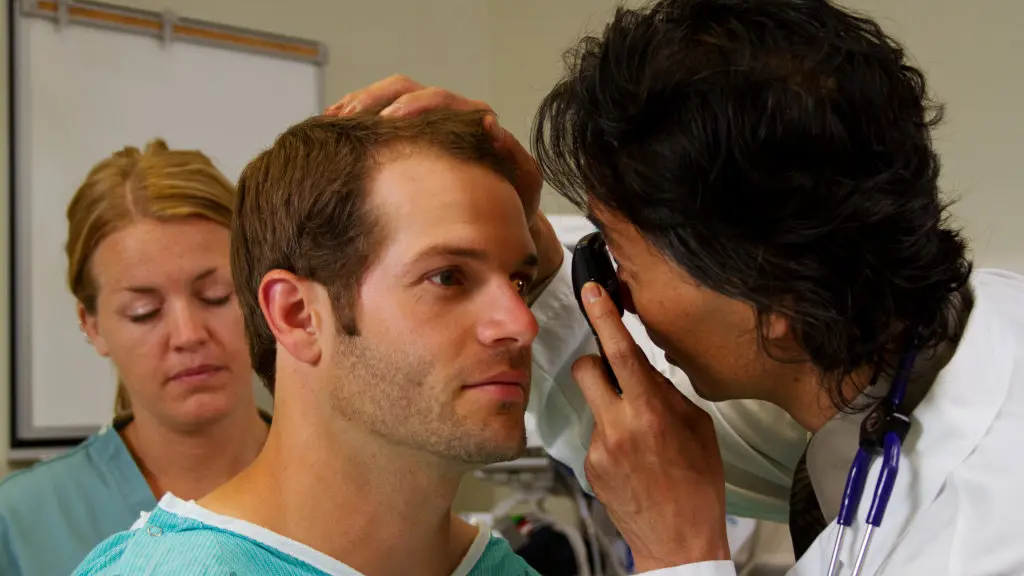
Selecting the right alcohol withdrawal pathway begins with a careful assessment of your needs and risks. Screening tools, severity measurements and clear criteria for escalating the level of care help to ensure that you receive the appropriate support and medical attention during detox.
From Risk Screen to Severity Tool
Effective alcohol withdrawal management starts with identifying your risks and then monitoring their severity.
Based on results from the Prediction of Alcohol Withdrawal Severity Scale (PAWSS), clinicians may select the CIWA-Ar for verbal patients or the mMINDS for non-verbal patients. If your condition changes, it’s important to re-evaluate and adjust the tool being used.
While these scales provide valuable guidance, they do not replace clinical judgment. Clinicians should always account for complicating factors, such as concurrent intoxication, sedative use or other comorbid conditions, when making care decisions.
Level of Care & Escalation
Determining the appropriate level of care is essential to safely manage alcohol withdrawal.
Outpatient treatment may be appropriate when you have mild symptoms and low risk, provided you have stable support in place. Admission should be considered if there are moderate to severe withdrawal scores, medical or psychiatric instability, unreliable social supports or a high-risk history.
Intensive care unit (ICU) management is warranted when you have severe agitation, uncontrolled autonomic hyperactivity, seizures or concerns for delirium tremens (DTs). Greater care should be taken in older adults, during pregnancy or in those with significant liver disease.
Monitoring & Documentation
Ongoing monitoring and accurate documentation are critical in guiding alcohol withdrawal management.
Consistently tracking your symptoms, vital signs and interventions helps ensure timely adjustments that support your safety.
Reassessment Cadence & Thresholds
Careful reassessment during alcohol withdrawal is vital to identify changes in symptom severity and adjust treatment.
According to the American Society of Addiction Medicine (ASAM), people with moderate to severe withdrawal or those receiving medications should be reassessed every 1–4 hours during the first 24 hours.
Once symptoms stabilize for approximately 24 hours, monitoring frequency can be extended to every 4–8 hours for another day as indicated.
Escalating your level of supervision and monitoring is warranted if withdrawal scores rise despite treatment, vital signs worsen or new complications develop.
This structured approach helps ensure timely interventions while minimizing risks.
Documentation Essentials
Thorough documentation is a cornerstone of safe alcohol withdrawal management. At each check, clinicians should record the withdrawal scale score, vital signs, interventions provided and the patient’s response.
It is also important to note specific triggers for dose adjustments and safety measures. Balancing monitoring is key.
Over-monitoring may lead to unnecessary medication administration, while under-monitoring increases the risk of missing early signs of deterioration.
Matching the documentation cadence to the severity of symptoms ensures accurate tracking and supports appropriate clinical decisions.
FAQs
The Prediction of Alcohol Withdrawal Severity Scale (PAWSS) is a risk screening tool used before or early in withdrawal to help predict the likelihood of severe or complicated Alcohol Withdrawal Syndrome (AWS).
In contrast, the Clinical Institute Withdrawal Assessment for Alcohol, revised (CIWA-Ar) is designed for ongoing severity monitoring once AWS is present in communicative patients.
In practice, PAWSS helps identify who may need preventive measures, while CIWA-Ar tracks symptoms over time to guide treatment adjustments.
The CIWA-Ar scale depends heavily on patient-reported symptoms and is not validated for use in critically ill, intubated, or non-verbal people.
In these cases, the modified Minnesota Detoxification Scale (mMINDS) is preferred, often paired with Richmond Agitation-Sedation Scale (RASS), targeting intensive care settings. This approach allows healthcare providers to monitor withdrawal severity objectively while ensuring sedation is carefully managed.
Scoring tools should always be interpreted within a broader clinical context, but general thresholds can guide placement decisions. A CIWA-Ar score below 10 may be appropriate for outpatient care if reliable support is available. Moderate scores (10–18) often require admission for closer supervision.
Scores of 19 or higher, or the presence of complications such as seizures or delirium tremens (DTs), typically indicate the need for inpatient or ICU-level care.
The American Society of Addiction Medicine (ASAM) recommends reassessment every 1 to 4 hours during the first 24 hours when you have moderate to severe alcohol withdrawal or are receiving medication.
Once stabilized, monitoring can be extended to every 4 to 8 hours. When you have mild symptoms, lighter schedules may be appropriate, guided by clinical judgment.
Yes, the Short Alcohol Withdrawal Scale (SAWS) is a validated self-report tool designed for use in ambulatory or home settings. It allows you to track withdrawal symptoms, but it is not intended to replace professional evaluation.
For safety, SAWS should always be paired with clinician oversight and clear instructions on when to seek urgent medical attention.
Find Treatment Near You
Finding the right support starts with exploring available options. Use the Rehab.com directory to search for treatment centers. You can filter by location, level of care, insurance, and specialized programs. This makes it easier to identify resources that meet your unique needs.
Not sure where to start? Call today to talk to someone about your treatment options and see if your insurance will cover rehab.
Top Rated Centers for Alcohol Addiction Treatment
| Name / Address / Rating | Description | Treatments / Payments / Programs | Review / Contact | Images | |
|---|---|---|---|---|---|
Avenues Recovery Center at ClarksvilleAd This is an ad and Avenues Recovery Center at Clarksville is a paid advertiser. Paid advertisers may be listed first in search results. This ad may contain content provided by the advertiser. Rehab.com does not verify ad content or any reviews that are displayed. Learn More Clarksville, IN | Avenues Recovery Center in Clarksville, Indiana, is an inpatient drug and alcohol detox and rehab center. They strive to provide individuals receiving treatment with a loving environment and attentive medical care. You’ll be away from toxic environments and triggers and have the opportunity to focus on developing life skills that will support you | Treatments Programs Payment Options | View Website (930) 203-1947 | I highly recommend Avenues. The staff is absolutely amazing and very helpful. They treat you like family. Star, Jenny, Tarah, Paige, Monica, and both Amanda’s really helped me through.
Dana Key
3 weeks ago
It was a great experience great people thank you .
Jessica Fulkerson
3 weeks ago
This facility has been life saving. I am so grateful to be able to have gotten the help they had offered.
Nikki
3 weeks ago
| 
4 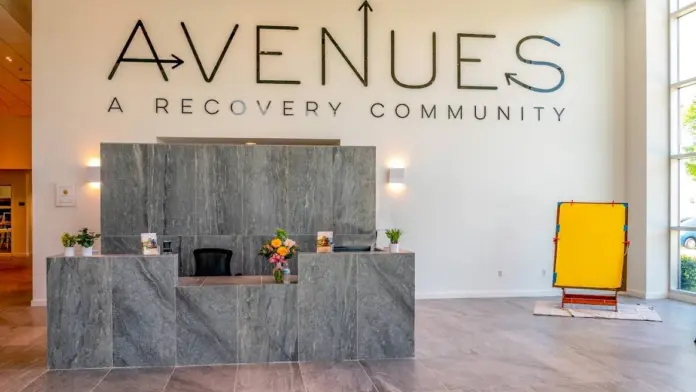
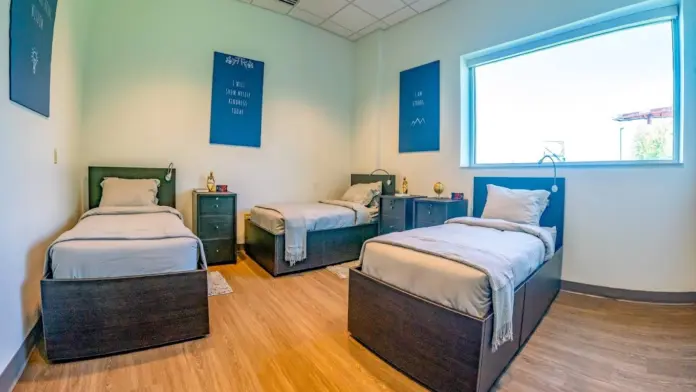

|
1
Top 10 Rehab in AZ
Rehab Score
Our Rehab Score is designed to make it easier for you to find the best treatment centers. We combine overall ratings with recent feedback to create a score that reflects a center’s quality right now.
8.90 / 10 | Soberman’s Estate, located in Cave Creek, Arizona, is an alcohol and drug rehab center that provides addiction treatment services to adult men, professionals, and public figures. They are a discrete, luxury rehab for individuals aged 30 to 80 years old. This location caps their treatment center at ten men at a time. As one of leading inpatient re | Treatments Programs Payment Options | Soberman’s Estate was everything I needed for my recovery. The staff, the program, physical activity and culinary experience were top notch and essential. The program is well designed and worked better than I expected. The staff is remarkable – professional, considerate and genuinely caring. My time there and being removed from alcohol for five weeks was everything I needed to remove my craving for alcohol. Soberman has changed my life in ways I never could have imagined. I feel confident, secure and grateful for my new life. I have reconnected with my family and friends. Thank you Soberman.
George B.
4 months ago
Yes, very professional staff, treatment, therapist, chefs were good! even the home cook did the best she could, and loved the horses of Course! Saturday morning hiking was fun to explore the trails of the nearby mountain area!
John E Williams
4 months ago
I had a great experience overall and would recommend it to anyone wanted to jump start their sobriety!!
Kevin Crawford
4 months ago
| 
5 5 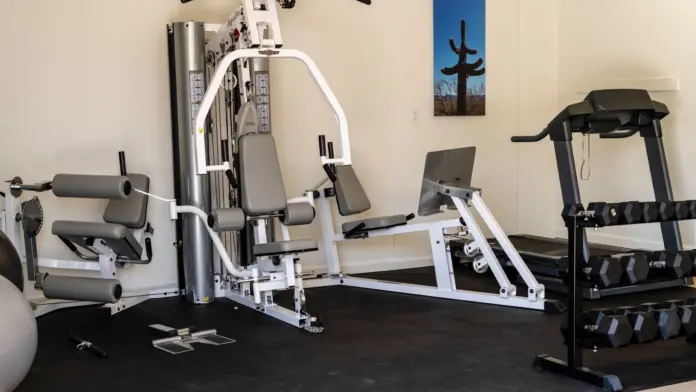



| |
1
Top 10 Rehab in CA
Rehab Score
Our Rehab Score is designed to make it easier for you to find the best treatment centers. We combine overall ratings with recent feedback to create a score that reflects a center’s quality right now.
8.81 / 10 | All In Solutions Detox in Simi Valley is one of the best ranked inpatient detox facilities in California providing safe, medically supervised care for individuals beginning their recovery from drug or alcohol addiction. As part of the All In Solutions Behavioral Health network, this facility serves as the first step in a full continuum of care. Cli | Treatments Programs Payment Options | I had an amazing experience and really enjoyed getting to know the staff and my fellow peers in groups. The staff really cares about your recovery and you will feel better every day. The food is good too lol.
Desiree
1 week ago
I loved it here it was a great place to be would definitely recommend to anyone wanting to get sober thank yall!
Kyle Robinson
1 week ago
i owe it all to this place. 100% recommend if you’re serious about your recovery. thanks AIS ❤️
maddy chacos
1 week ago
| 
5 5 

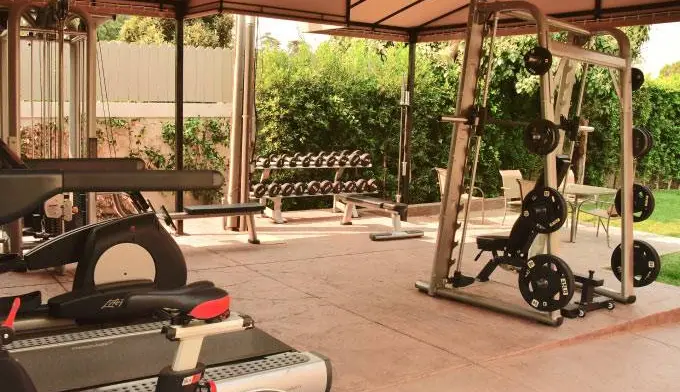

| |
1
Top 10 Rehab in TX
Rehab Score
Our Rehab Score is designed to make it easier for you to find the best treatment centers. We combine overall ratings with recent feedback to create a score that reflects a center’s quality right now.
8.80 / 10 | Symetria – Hurst Outpatient Rehab and Suboxone Clinic in Hurst, Texas, is a private drug rehabilitation clinic for adults. One of the best outpatient rehab centers in Texas, Symetria offers various withdrawal medications to help clients get started with their recovery journey. You’ll also have access to treatments such as the intensive outp | Treatments Programs Payment Options | Symetria is unbelievably amazing!!! The Hurst staff is phenomenal!!! I can’t imagine that another location has a better staff. A special shout out to Deborah, Benjamin, and Samantha of course. You all are doing amazing, amazing, selfless work. You all are very special to so many!!!
Vernon Godsey III
3 months ago
Huge shout out to the team at symetria who make me feel like family I appreciate everything they do and huge shout out to Osagie for helping me! He is AWESOME!!! I love you symetria❤️❤️❤️
Chloe Roseman
4 months ago
BEST PLACE EVER. I have tried various other doctors/clinics and none of them even begin to compare to this one. The staff here is absolutely amazing. I can’t even make a single complaint. Dr Son is the best as well. He explains everything and you truly feel like he understands you. I can proudly say this, this place saved my life. If you or someone you know needs help getting off opiates do it right the first time and come here. You won’t be disappointed. If you are specifically struggling with fentanyl please don’t waste your time with other ways. I have tried 6 other methods from lazer therapy to having the earpiece to suboxone. Methadone is the key to our current fentanyl crisis. This clinic makes recovery possible again!
Mason
4 months ago
| 
5 5 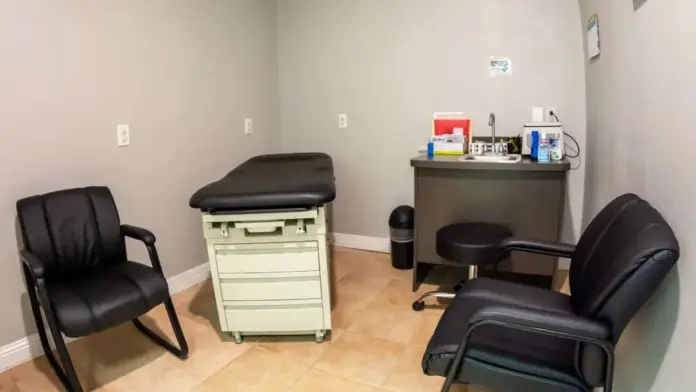
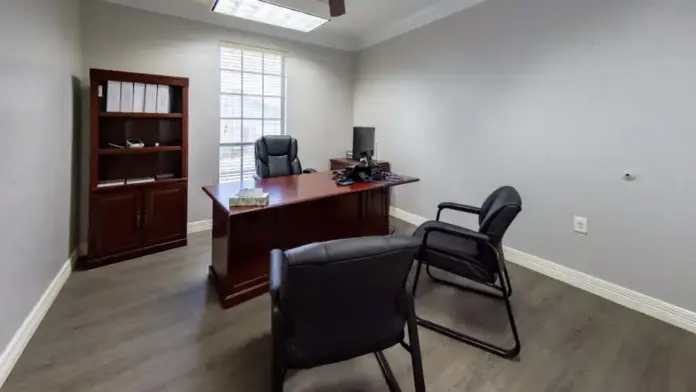

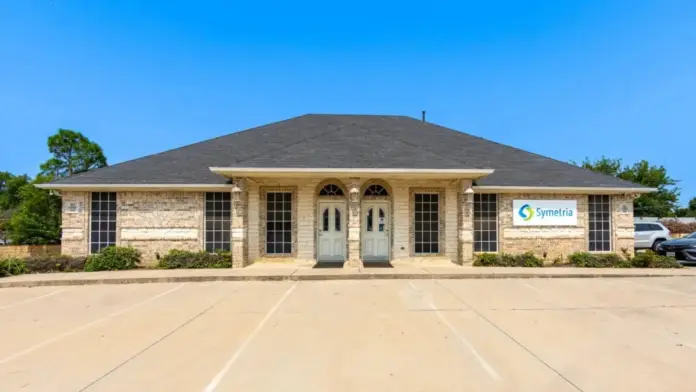
| |
Boca Recovery Center – Bloomington Alcohol & Drug RehabAd This is an ad and Boca Recovery Center – Bloomington Alcohol & Drug Rehab is a paid advertiser. Paid advertisers may be listed first in search results. This ad may contain content provided by the advertiser. Rehab.com does not verify ad content or any reviews that are displayed. Learn More Bloomington, IN | The Boca Recovery Center is a luxury alcohol and drug rehab center for adults in Bloomington, Indiana. They specialize in cutting edge addiction treatment provided in a residential setting. One unique part of this alcohol and drug rehab in Indiana is the peaceful, secluded setting. If recovering in a clinical hospital setting doesn’t sound very a | Treatments Programs Payment Options | View Website (930) 203-1400 | This place damn near saved my life. Staff is amazing and care almost on a personal level. Nurses are knowledgeable and groups are interactive informative and inclusive.
Edit*
Shout out to Beth, Nora and Carter! Made a great impact on my recovery!
V Montez
2 weeks ago
I learned a lot from this place. They’re really good at bringing everything out that you need to say in under to recovery. Thanks for everything. You guys have changed my life
Megan Tipton
2 weeks ago
Boca recovery was a magical experience during a very difficult time that will always hold a special place in my heart. From top to bottom, the support of staff is second to none.
Tyler and Carrie, Carter, Alexx, Ashley, Brooke, Michelle, Meagan, and the rest of the techs are phenomenal. My therapist January opened my eyes to perspectives I had been missing my entire life and Justin the case manager worked tirelessly from the start all the way until his wife gave birth on my last day to make sure I was set up for success.
The nurses are amazing and the medical attention someone needs during this portion of their recovery is 110% offered around the clock.
The place has everything you need from a gym to recreational activities, spacious beds with luxury amenities. And one cannot go without mentioning the chef, Tim. You won’t find better “rehab food” and conversation.
I owe a thank you to the director John for his efforts to get me into a great program after my stay was over.
To anyone struggling with with mental health and/or addiction, I cannot shout praises loud enough for what this program has to offer each and every client that walks through those doors.
If you want a way out, there’s no better place to check in.
Alex K
1 month ago
| 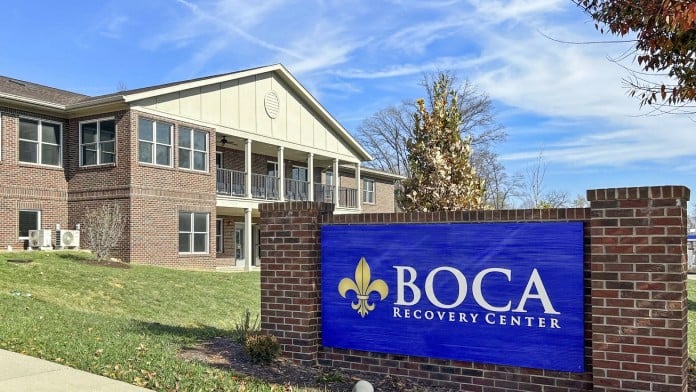
6 6 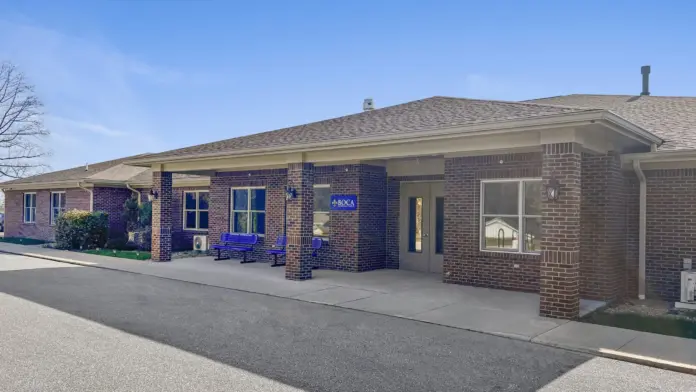
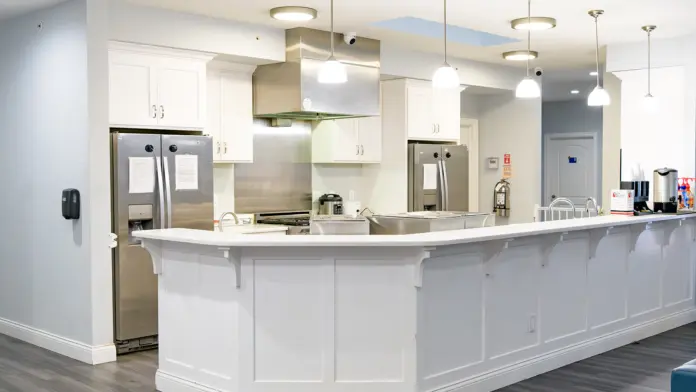
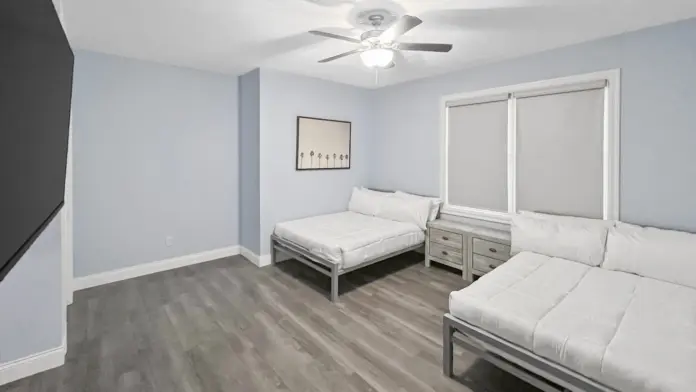
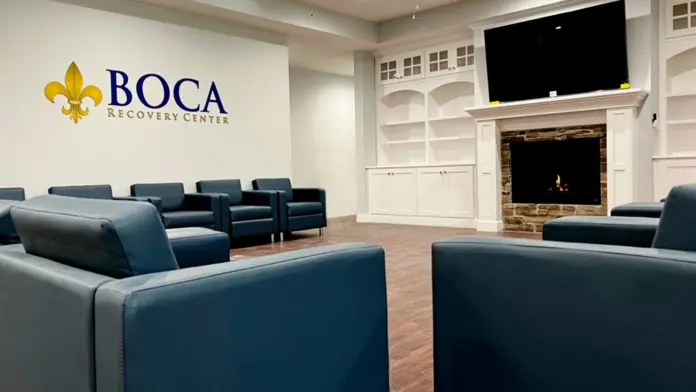
|
1
Top 10 Rehab in FL
Rehab Score
Our Rehab Score is designed to make it easier for you to find the best treatment centers. We combine overall ratings with recent feedback to create a score that reflects a center’s quality right now.
8.80 / 10 | All In Solutions Counseling Center is a mental health center and addiction treatment program in Boynton Beach, Florida. They provide a partial hospitalization program, an intensive outpatient program (IOP), an outpatient program, medication-assisted treatment, and mental health care for adults with substance use disorder. All In Solutions Counseli | Treatments Programs Payment Options | The staff were amazing. Can really tell the people care about you. Amazing people who have lived through the experience and recovery they are trying to show all of us. Can’t recommend it enough.
Tyler
1 week ago
such a good facility. love all the staff! nicole is an awesome therapist!
Sydney Shaw
2 weeks ago
All In Solutions received me with open arms for the second time. The staff make sure you receive a high quality care treatment. I’m grateful for the love and care . God continue to bless everyone.Thank you for you do .
Jianil Richiez
3 weeks ago
| 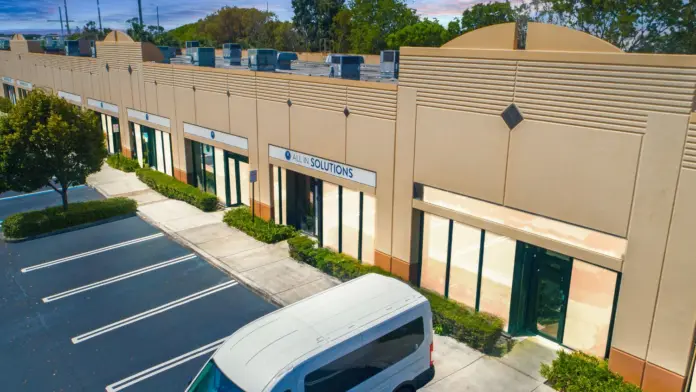
4 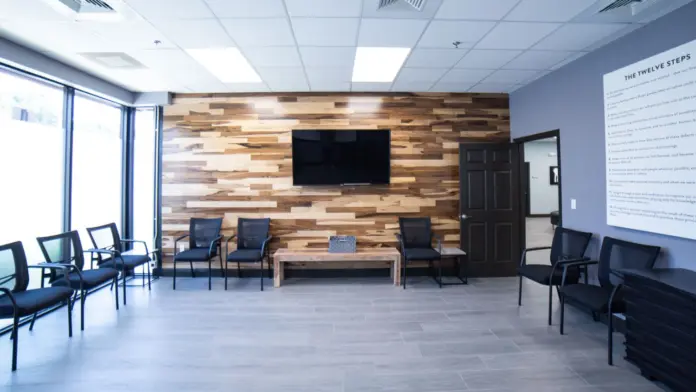
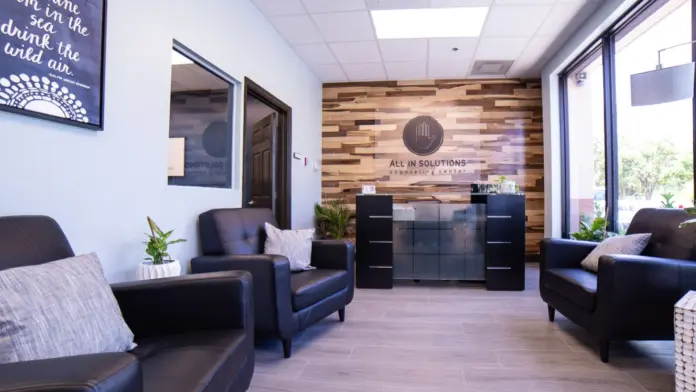
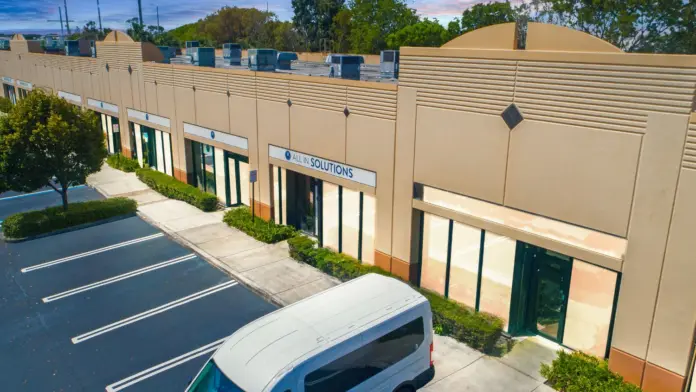
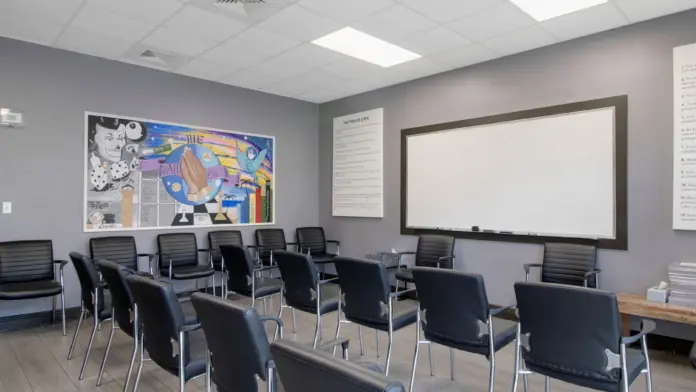
| |
1
Top 10 Rehab in NJ
Rehab Score
Our Rehab Score is designed to make it easier for you to find the best treatment centers. We combine overall ratings with recent feedback to create a score that reflects a center’s quality right now.
8.80 / 10 | Boca Recovery Center – Galloway is a drug and alcohol rehab in Galloway, NJ. They provide inpatient addiction treatment and medical detox. Boca Recovery’s New Jersey Drug & Alcohol Rehab, located in Galloway, New Jersey offers residential addiction treatment, medical detox, and medication-assisted treatment in an immersive treatment s | Treatments Programs Payment Options | My sobriety journey started at Boca. The staff members including Miss Tracey, Hannah and Kevin their alumni coordinator have completely flipped the trajectory of my life. I was immediately taken in with open caring arms and they made my detox process as comfortable as possible. During my stay, Joe was extremely helpful in helping me slowly gain my appetite back and start to feel stronger and was so attentive to my nutritional health. Nurse Patrick was so kind to me during my intake and Kevin still reaches out to me very often to check in and is so helpful in my recovery process. I owe gaining my life, my strength and my family back to Boca and I am eternally grateful❤️
Rianna Dean
1 month ago
Great facility with even greater staff. One of the best rehab/detox in South, NJ.
Donna Kratzer
1 month ago
Very comfortable stay
Will
1 month ago
| 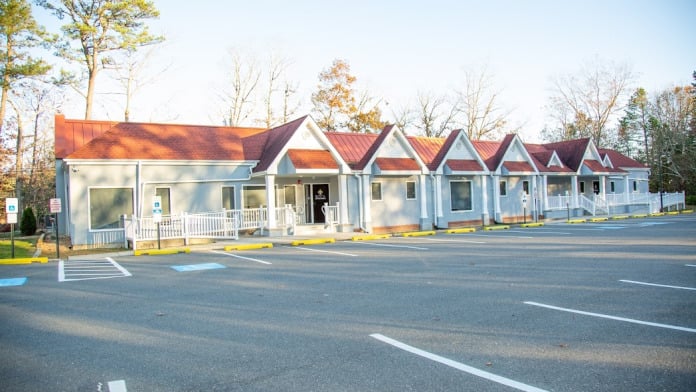
7 7 
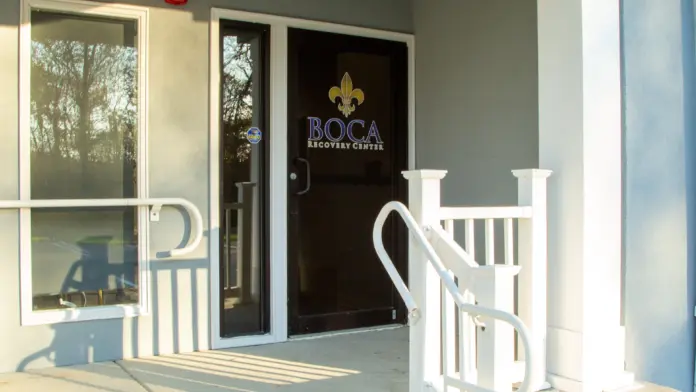
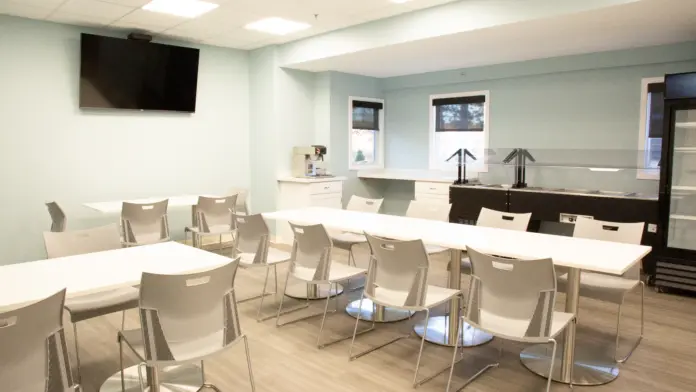
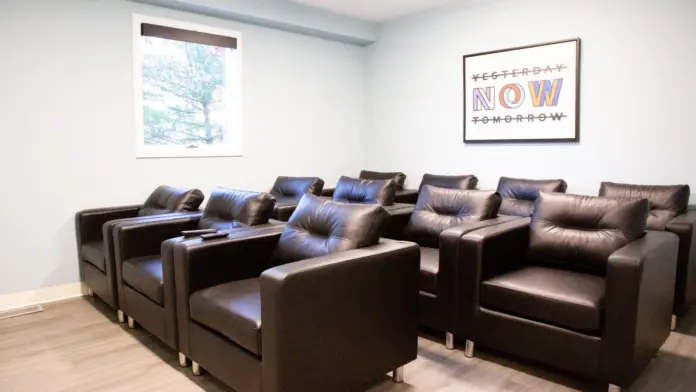
| |
1
Top 10 Rehab in TN
Rehab Score
Our Rehab Score is designed to make it easier for you to find the best treatment centers. We combine overall ratings with recent feedback to create a score that reflects a center’s quality right now.
8.77 / 10 | If you’re looking for a Christian-based men’s drug rehab center, S2L Recovery in Woodbury, Tennessee, might be the place for you or your loved one. Located at the top of Short Mountain, and overlooking the green hills of Middle Tennessee, this residential and detox clinic boasts a one-to-one staff/patient ratio so there’ll always be someone t | Treatments Programs Payment Options | Coming from Canada, I was hesitant. But God knew that S2L was exactly where I needed to be. At 64 years of age, I was able to discover my true identity, purpose, and mission in Christ. They help you in trying to get clean and sober for sure. But what S2L and the staff are all about is the Gospel of Jesus Christ. That’s why it is so successful.
TIM TANNER
4 months ago
I’ve had the privilege of seeing the life-changing impact this ministry has on countless men & I can’t recommend it highly enough! God has His Hand on this ministry & I’m honored to see the Lord work in these men!
Hunter Stanfield
4 months ago
Come here with a open mind and heart. It can and WILL change your life in all ways. Trust the process and trust God! Could go on and on about how amazing this place, I’ll forever be grateful!
Trevor Woodard
4 months ago
| 
6 6 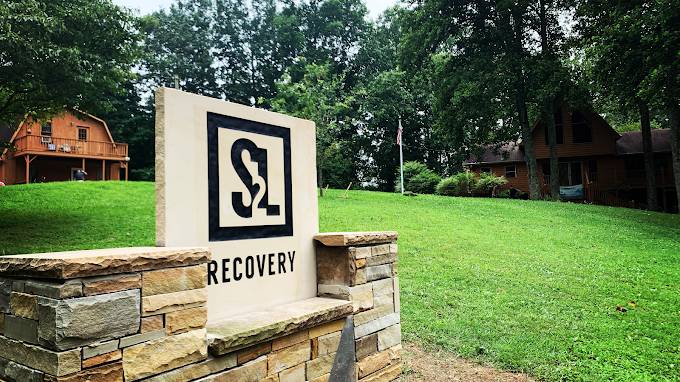

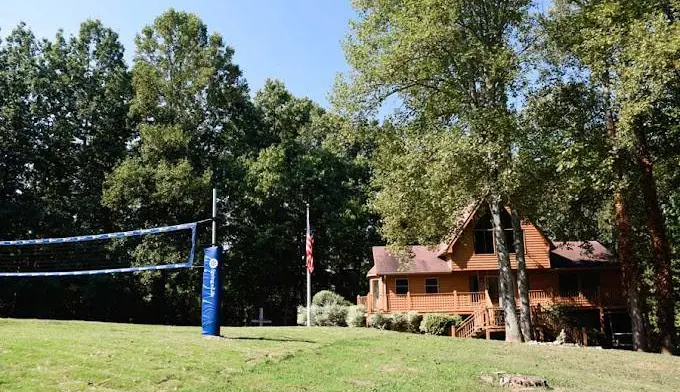

| |
1
Top 10 Rehab in PA
Rehab Score
Our Rehab Score is designed to make it easier for you to find the best treatment centers. We combine overall ratings with recent feedback to create a score that reflects a center’s quality right now.
8.76 / 10 | The Steps To Recovery addiction treatment center is situated in Levittown, Pennsylvania. At this drug rehab center, patients can expect to engage in a unique treatment approach that focuses on helping individuals recover through authenticity, intimacy, community connection, and transparency. Steps to Recovery offers a serene and private environ | Treatments Programs Payment Options | Good place, great housing
Nicole Rivera
3 months ago
Amazing support network and great staff lovely time with my stay at STR buck
William Perry
3 months ago
My experience at Steps to Recovery has been great for the most part, the people and the environment are very welcoming and comforting. I have had some issues that have come up, but they usually get resolved. My only main gripe is with some of the other clients at the community living house fail to clean up after themselves, and some do not know self control. But, the staff here is very professional and easy to talk to. I find that the opportunities here for my recovery journey are pretty good, although I’d like access to more holistic therapy resources. I’ve actually personally facilitated a Dharma meeting and will facilitate more in the future. I appreciate my time here at STR and am excited for the future with them.
Jerry Davis
4 months ago
| 
6 6 
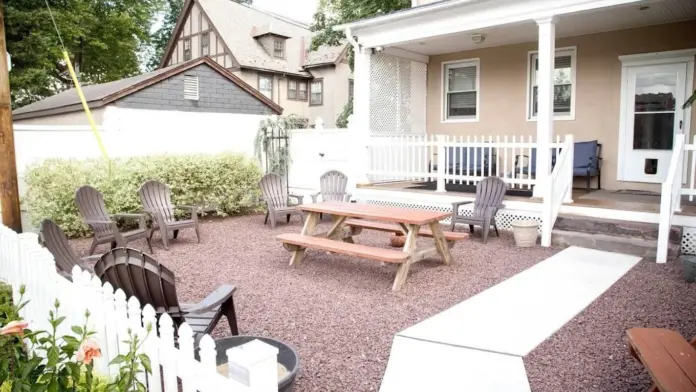


| |
2
Top 10 Rehab in CA
Rehab Score
Our Rehab Score is designed to make it easier for you to find the best treatment centers. We combine overall ratings with recent feedback to create a score that reflects a center’s quality right now.
8.76 / 10 | Located in Watsonville, California, Elevate Addiction Services provides alcohol and drug rehab services to men and women suffering from addiction. Their levels of care include detox, inpatient treatment, and outpatient treatment. One of the best ranked Outpatient treatment centers in California, Elevate Addiction Services provides a wide continuum | Treatments Programs Payment Options | Thank you elevate for being a jam up place and helping me get back too sobriety for the first time in my adult life. I appreciate you guys more than you’ll ever know!
Cameron Laster
2 days ago
Elevate was an awesome experience. I learned a lot about myself and I now have the tools for long term sobriety
Colin Yan
1 week ago
Elevate has been a life changing experience. The staff is very professional and compassionate. The community of clients is very special and the morale is unlike anywhere else. I would highly highly recommend Elevate Addiction Services to anyone struggling with addiction. From detox to the very end of your stay you are well taken care of.
Travis Boe
1 week ago
| 
5 5 



|





